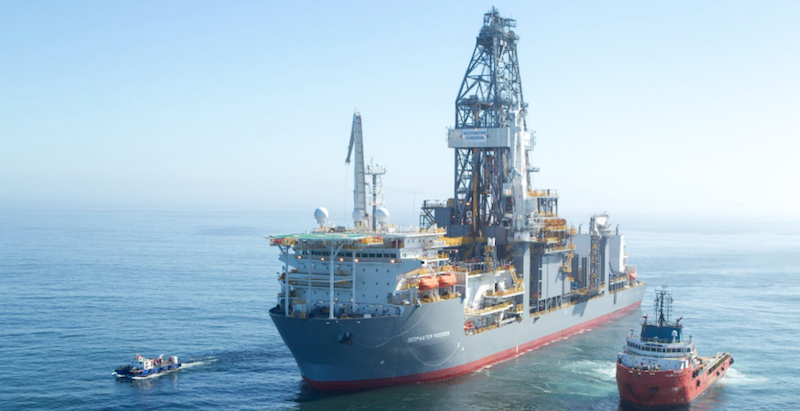Shell Offshore Inc. announced Thursday that it had made a large, deepwater, exploration discovery in the Norphlet geologic play in the U.S. Gulf of Mexico with its Dover well (100% Shell).
The Dover discovery is Shell’s sixth in the Norphlet and encountered more than 800 net feet of pay (244 meters). The discovery is located approximately 13 miles from the Appomattox host and is considered an attractive potential tieback. Shell’s Appomattox host has now arrived on location in the U.S. Gulf and is expected to start production before the end of 2019.

Shell’s map of the Dover discovery. Shell image
“Dover showcases our expertise in discovering new, commercial resources in a heartland helping deliver our deep water growth priority,” Andy Brown, upstream director for Royal Dutch Shell said in a statement. “By focusing on near-field exploration opportunities in the Norphlet, we are adding to our resource base in a prolific basin that will be anchored by the Appomattox development.”
Shell’s major, deepwater hubs are well positioned for production expansion through near-field exploration and additional subsea tiebacks, the company said. The company expects its global, deepwater production to exceed 900,000 bbls. of oil equivalent per day by 2020 from already discovered, established areas.
The well was drilled in Mississippi Canyon Block 612, located approximately 170 miles (273 kilometers) offshore southeast of New Orleans, in a water depth of 7,500 feet (2,280 meters) to a total vertical drilling depth of 29,000 feet (8,839 meters) measured depth. Shell’s Dover discovery was drilled by the Deepwater Poseidon, a newbuild rig contracted from Transocean. The 781'x138' drillship has a maximum water depth of 12,000' and a maximum drilling depth of 40,000'.
The Appomattox host platform is owned by Shell (79%) and Nexen Petroleum Offshore USA Inc. (21%).




